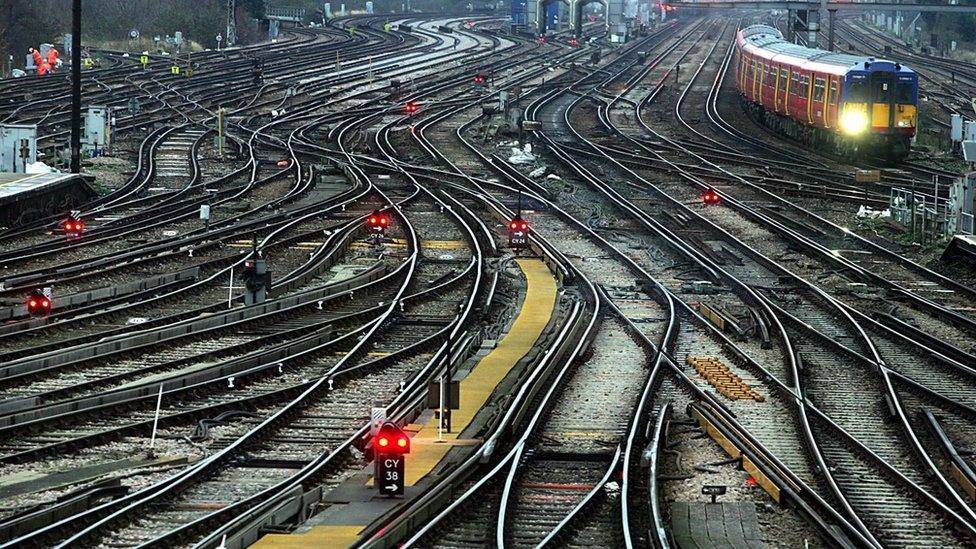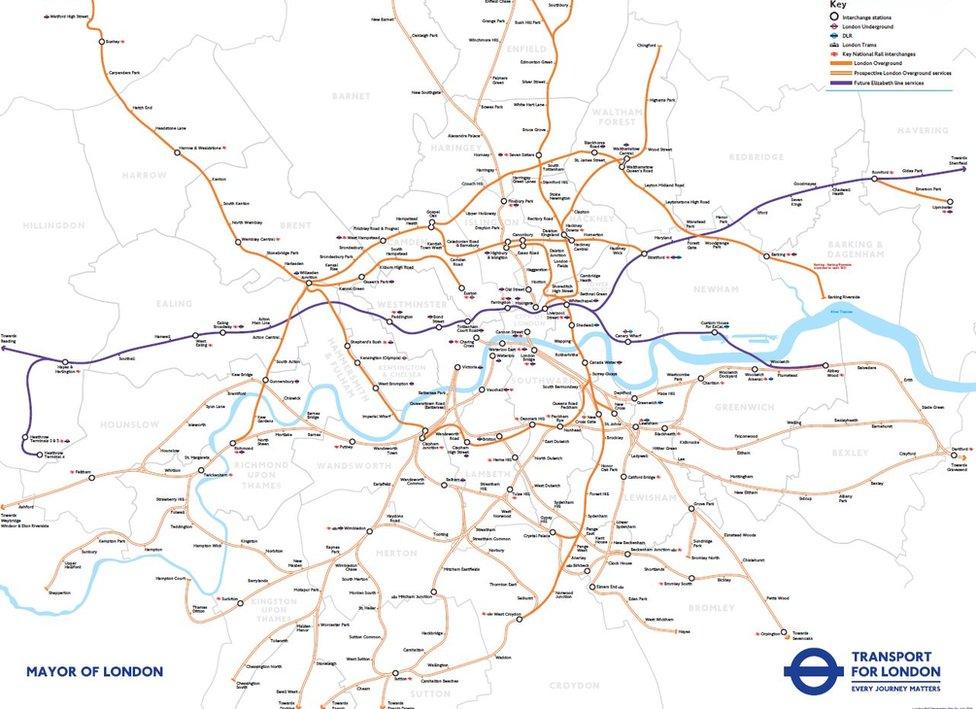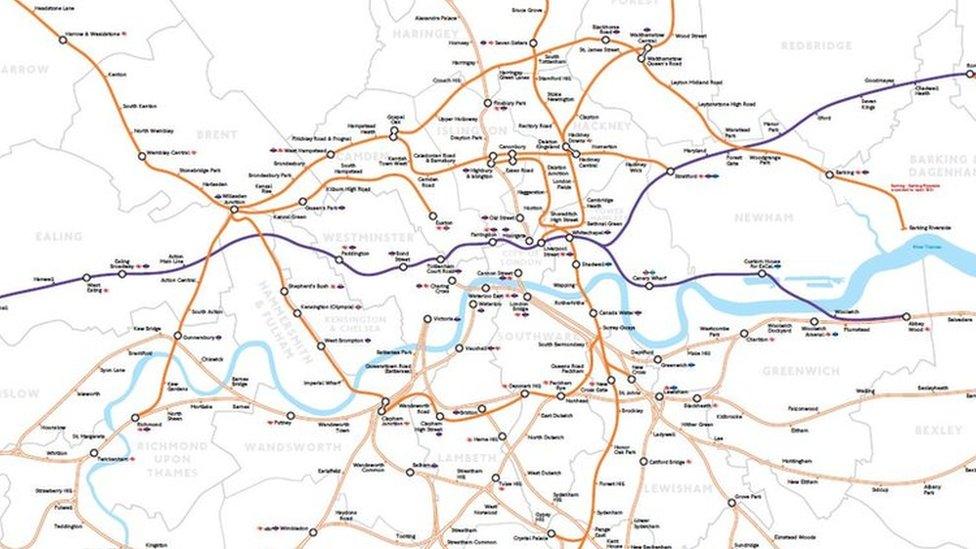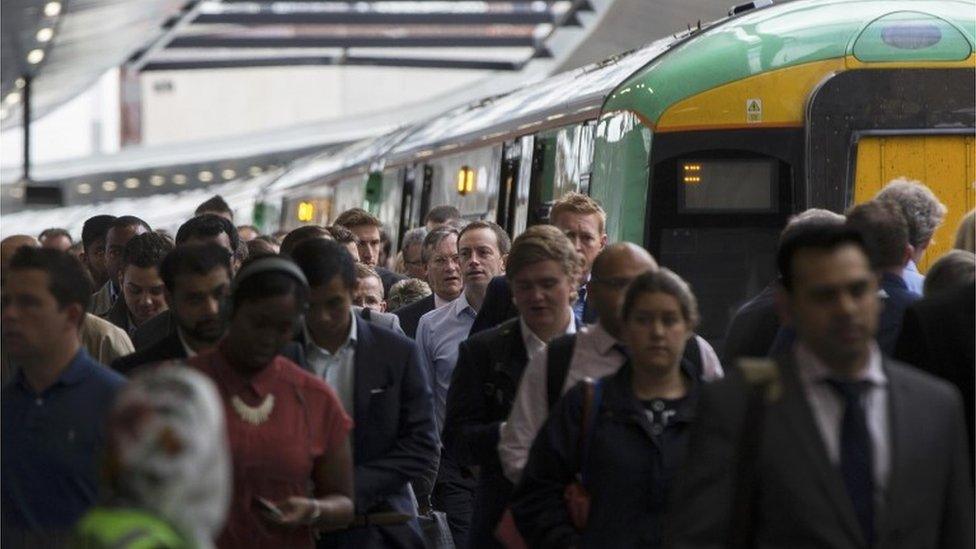Challenges in the way for the mayor to take over London rail routes
- Published

Many services currently run at capacity
The suburban rail routes around London are crucial to thousands of commuters a day, so how can the mayor exert control over them?
Every mayor has attempted to take them over.
Ken Livingstone grabbed the failing Silverlink franchise and turned it into the Overground, while Boris Johnson took over West Anglia.
In both cases the business model was changed to what's called a concession, which means Transport for London (TfL) pays an operator to deliver a service but keeps the fare box and sets the fares, like the Docklands Light Railway.

The feint orange line reveals which routes the Mayor of London wants to take over
Broadly, the service and passenger experience has improved - although some who use West Anglia have complained to me about the service there - and passenger numbers have increased with a more reliable Metro service.
Now the current mayor Sadiq Khan wants to push on and take over the suburban routes.
The timetable is tight, TfL would have to be in a position to takeover Southeastern by 2018.
'At capacity'
The Department of Transport had been very keen on the idea, but there seems to have been a cooling on rail devolution.
Conservative mayor Boris Johnson only managed to get one franchise in eight years and that was with friends in government.
There are other challenges as well. Network Rail will still own and operate the infrastructure and many of the routes like South Western ones into Waterloo are at capacity.
So, would TfL make a big difference on those lines?
There's also the thorny question of TfL running services outside the boundary of London, although there is precedent in Watford and Hertfordshire with the Metropolitan Line.
But none of it is straight forward and the politics could very easily get in the way.
- Published21 September 2016

- Published18 March 2016
- Published14 January 2016
